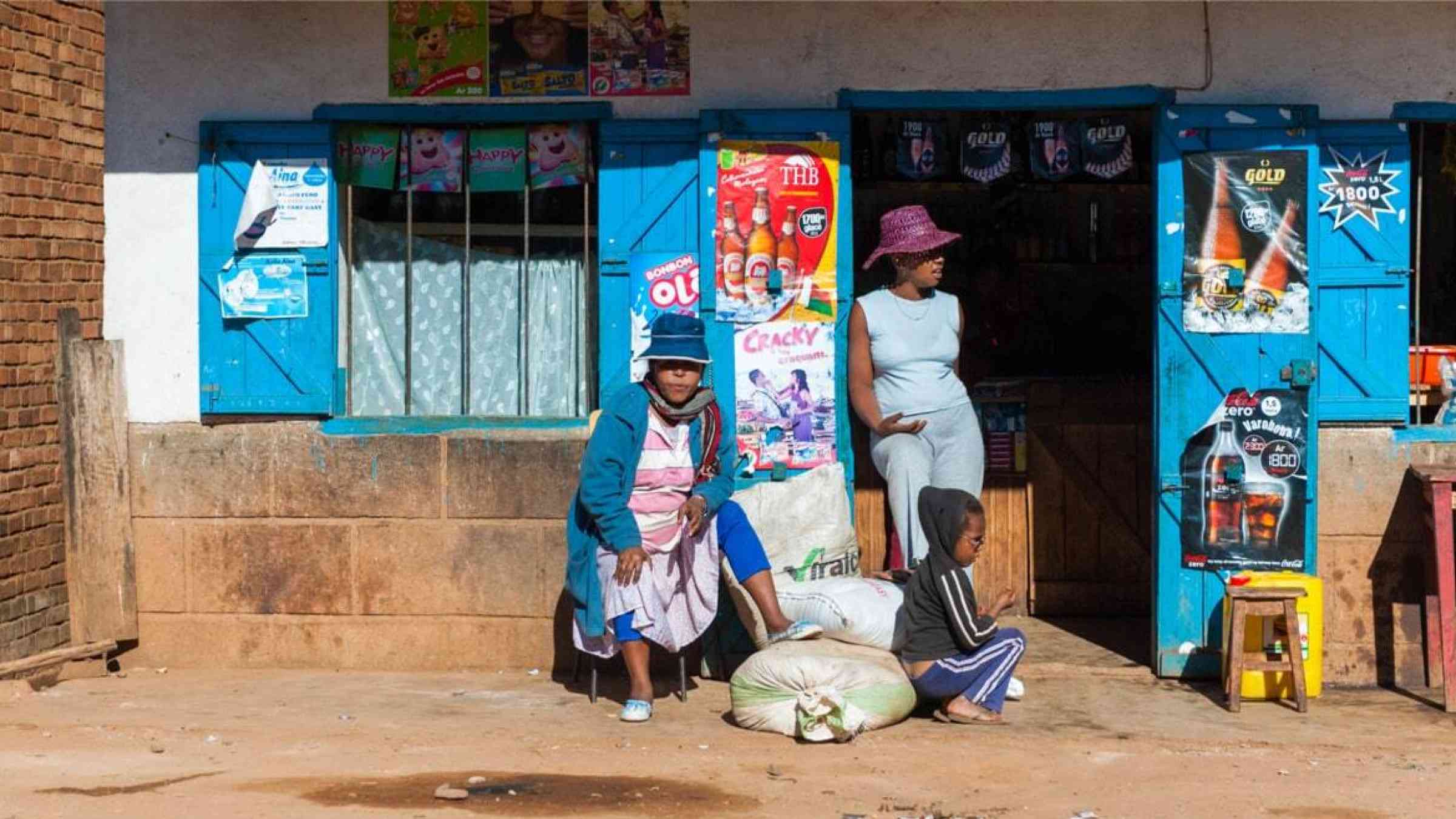How a map helps reduce risk in Madagascar

How we’re working with communities to reduce the impact of disasters induced by natural hazards in Madagascar.
Back in 2021, Madagascar made headlines around the world as the island nation’s worst drought in 40 years led to a terrible hunger crisis in the southern Grand Sud region. Yet the island’s northern regions face a very different challenge: storm after deadly tropical storm pummel villages, destroying homes and livelihoods, contaminating water sources, and sometimes even leading to loss of life.
In the Menabe region on the country’s western coast, the danger from those storms is no less present for being located further south. Many municipalities here are built on or near rivers or estuaries and have low vegetation cover, so they can quickly flood when storms hit with intense rain and are affected by increasingly large tides as sea levels continue to rise. To help community become more resilient to natural hazards, we expanded our existing Early Warning System project to this region in 2020, and have been working with 184 communities.
We do this by offering disaster risk reduction (DRR) training and support. DRR programmes work with communities to help them identify the natural hazards and security risks that post the greatest threat to their village, and then build on existing knowledge and innovations to help mitigate those risks. In Menabe, one of the ways we did this was by working with each community’s DRR committee in risk mapping workshops.
In a risk mapping workshop, participants are encouraged to look at their own village or community to look at the places where possible risks might arise. They may, for example, draw a map of their village on a poster-sized piece of paper, and then identify areas that are prone to recurrent flooding or landslides. They might add the direction the water flows in, where it drains away from the village, and add in possible locations for evacuation zones if the waters begin to rise. Every map is created and each risk and mitigation strategy identified with the support of our trainers, who can also offer technical advice on how recurrent risks can be identified and mitigated. At the end of each set of risk mapping workshops, the hand-drawn maps are rendered into digital copies and printed out for each village, ensuring that every member of the community has a clear visualisation of their village and the knowledge and risks they’ve identified continue to be available for everyone.
Albert has attended several DRR trainings with Medair, including a risk mapping workshop, and is a member of his village’s DRR committee. ‘I appreciate our collaboration,’ he says. ‘The multi-hazard map is very useful for our population. I am very happy to explain to people who look at the map how it will help us prevent floods.’
The project has been so useful that it was recently recognised by Madagascar’s National Bureau of Disaster Management (BNGRC).
‘The main objective of this project is to enhance the knowledge of the population in their way of facing natural hazards,’ says BNGRC Menabe representative Mamisoa Andriamahefa. ‘We would like to thank Medair and the donors for making an extra effort to raise awareness on DRR.’
By engaging directly with communities at risk from natural hazards in Madagascar, we can help ensure that the individuals who are most affected by floods and tropical storms have the knowledge and skills they need to protect their villages to reduce potential risks.
That, in the long term, can almost certainly help save lives.